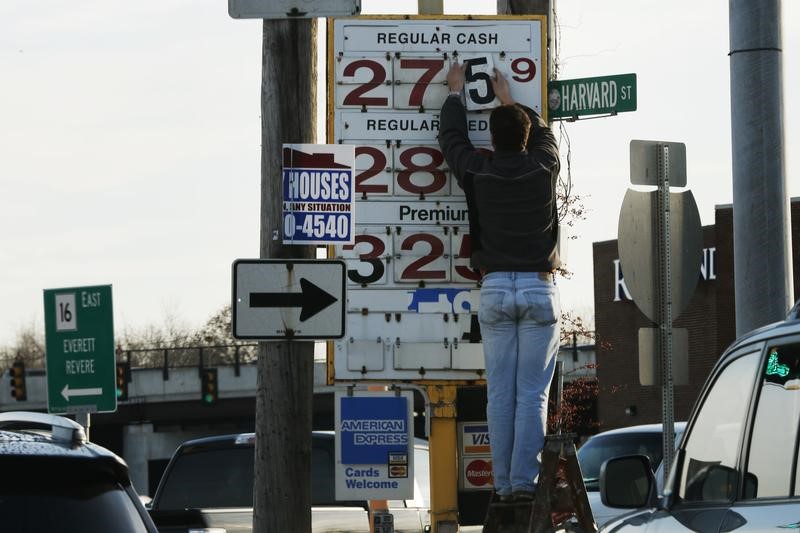By Rory Carroll
SAN FRANCISCO (Reuters) - U.S. states where gasoline taxes have not risen in decades are now discussing an increase and conditions might be ripe for the proposed hikes to win approval in state legislatures, tax experts said this week.
Low gas prices, a desperate need for revenue to fix crumbling roads, and a post-election period that gives politicians the space to tackle controversial issues have breathed life into efforts to raise the taxes, said Carl Davis, research director at the non-partisan Washington D.C.-based Institute on Taxation and Economic Policy.
In all, 21 state legislatures will consider bills aimed at increasing gas taxes this year, Davis said.
"Some states that have gone 10 or 20 or almost 30 years without a gas tax rate increase, and they’ve seen the purchasing power of their taxes decimated by inflation. Those rates need to be updated," he said. "There are states that have a lot of catching up to do."
Chief among those are five politically conservative, traditionally tax-averse states that have not raised their fuel tax rates since the 1980s or earlier.
Alaska, Oklahoma, Mississippi, South Carolina and Tennessee – all of which voted for U.S. President Donald Trump in November – are debating gas tax increases in their state legislatures right now.
"As funds and their purchasing power have been depleted over the last few decades, states are coming to realize they have to raise revenues to maintain the transportation assets they have," Kevin Pula, a policy specialist at the National Conference of State Legislatures, told Reuters.
Alaska has not increased its fuels tax in almost 47 years and has the lowest rate in the nation. But faced with a budget shortfall, Governor Bill Walker, an independent, has proposed tripling fuel tax rates this session.
In Oklahoma, low oil and gas prices have created an estimated $870 million shortfall in the 2018 fiscal year. Republican Governor Mary Fallin in a speech on Monday proposed increasing the gasoline and diesel excise taxes by 7 cents and 10 cents, respectively, to 24 cents per gallon each.
"This increase keeps Oklahoma’s motor fuel tax rates well below the national average of over 29 cents per gallon," Fallin said.
Mississippi, South Carolina and Tennessee all have gas tax measures in their state legislatures.
Momentum for gasoline tax increases began in 2012. Since then, 19 states have raised their gas taxes including liberal-leaning blue states Massachusetts, Maryland, Vermont and New Jersey. Deep red Wyoming raised its gas tax in 2013, as did fellow conservative states Idaho and Nebraska in 2015.
Even if the states do not pass their gas tax increases this year, they could still eventually become law.
"It's very unusual at the state level to see a measure proposed and then immediately enacted,” said Joung Lee, an associate director at the American Association of State Highway and Transportation Officials.

"It usually takes several bites at the apple," he said.